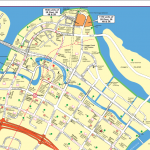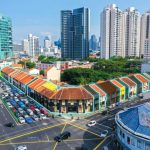The Workers’ Party questioned the Minster for National Development whether the surge of Chinese developers in the residential property market in the past five years has caused problems in property speculation, over-pricing of land sales and poor construction quality.
The Minister in responding to the question on Chinese Developers, said:
Table of Contents
“The private residential property market has largely been stable over the last five years. But there was a brief surge in property prices from 2H2017 to 1H2018 as market sentiments improved. Developers, both local and foreign, were bidding more aggressively for land. So this bidding behavior was not limited to Chinese developers, who accounted for less than 10% of the private residential sites sold via the Government Land Sales programme and en-bloc sales during this period. In terms of prices, the winning bids by Chinese developers were also comparable to those of other developers.
In terms of construction quality, one objective measure is the Construction Quality Assessment System (CONQUAS) administered by the BCA. The average CONQUAS score for private residential projects has been increasing over the years, and has remained high over the last five years. The average CONQUAS score for projects by Chinese developers is comparable to that of the national average.
The Government will continue to monitor trends in the property market, and adjust our policies as necessary, to provide good quality homes, and maintain a stable and sustainable property market.”
Two NUS Institute of Real Estate and Urban Studies’ researchers pointed out in a commentary published in Aug that the market share of the Singapore residential property market sold by Chinese developers has surged since 2015.
Their commentary published in Channel NewsAsia reported that, “China developers have made in-roads into Singapore’s residential property market as early as 2009, on the back of the economic recovery in the aftermath of the global financial crisis.”
“In more recent years, the spotlight has been shone on this group, especially after a plot of land at Stirling Road got snapped up for S$1.003 billion in May 2017, in a joint bid by Logan Property, a Hong Kong listed developer founded in Shantou, Guangdong, and the Nanshan Group, a conglomerate headquartered in Longkou, Shandong.
They outbid the second-highest bidder, MCL Land, by S$77 million for the 21,109.5 sq m site. The final price also turned out to be an unusual S$289 million (about 29 per cent) higher than the lowest bid price.
Most recently, another Chinese developer Kingsford Hurray Development acquired Normanton Park in an en bloc sale deal, also at a record-breaking S$830.1 million (excluding the estimated S$231.1 million upgrading premium to top up the lease to 99 years).
Kingsford was later slapped with a “no-sale” restriction on the acquired site by the URA’s Controller of Housing in April. They can commence construction but will not be able to sell units before obtaining a Temporary Occupation Permit (TOP). Concerns about construction quality might have been afoot.”
The CNA report added that there is little sign that Chinese developers are crowding out local developers as based on market launches, the market share of local developers has been hovering around 80 per cent.
 Just like the Chinese developers, the Chinese property buyers make up a small, but significant percent of the buyers of real estate in Singapore.
Just like the Chinese developers, the Chinese property buyers make up a small, but significant percent of the buyers of real estate in Singapore.
Chinese property buyers, including those from Hong Kong, China and Taiwan, accounted for 16 per cent of the private condominium transactions in Singapore. For the month to date, non-Singaporeans accounted for 23 per cent of buyers of private condos, excluding executive condos (EC), Urban Redevelopment Authority (URA) data showed.
Reflecting on this trend of Chinese property buyers snapping up local homes, Jefferies Singapore noted that Singaporean buyers accounted for 80 per cent of the incremental transactions. This it added is on the higher side of the historical trend.
“Buyers from China, Hong Kong, Taiwan and unspecified origin constitute 16% of the transactions which is lower than 18% reported earlier. Inflows may be channelled into commercial properties,” said Jefferies Singapore analyst Krishna Guha.
Mr Guha explained that some of the inflows into Singapore may be part of assets under management (AUM) of family offices and that this may be deployed into commercial properties including strata office/retail properties.
Noting that buyers from other countries like UK and Australia may be attracting some flows at the same time Mr Guha said, “This is primarily from children’s education perspective. Investors who are comfortable with emerging market risk-return profile are keen on properties in Thailand. Prices are range-bound, new sales volume steady.”
How to Secure a Home Loan Quickly
Are you planning to invest in properties coveted by Chinese property buyers but ensure of funds availability for purchase? Don’t worry because iCompareLoan mortgage broker can set you up on a path that can get you a home loan in a quick and seamless manner.
Our brokers have close links with the best lenders in town and can help you compare Singapore home loans and settle for a package that best suits your home purchase needs. Find out about our money saving tips here.
Whether you are looking for a new home loan or to refinance, the Mortgage broker can help you get everything right from calculating mortgage repayment, comparing interest rates all through to securing the best home loans in Singapore. And the good thing is that all our services are free of charge. So it’s all worth it to secure a loan through us.
For advice on a new home loan.
For refinancing advice.







